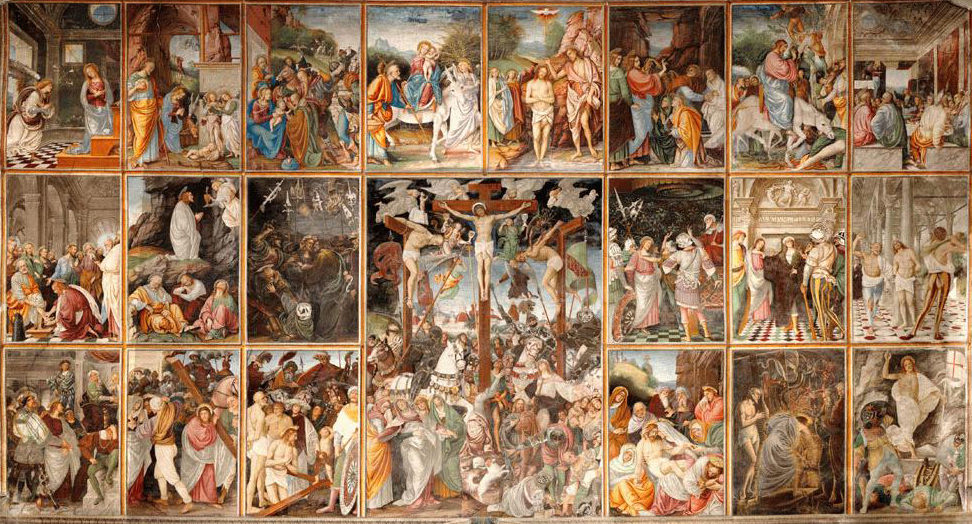
This post is part of the General Conference Odyssey.
Just like Walker, the talk that stuck out to me from this session[ref]the Saturday morning session in October 1974[/ref] was Elder Ashton’s talk: Who’s Losing? His answer? Nobody.
All of us, young and old, will do well to realize that attitude is more important than the score. Desire is more important than the score. Momentum is more important than the score. The direction in which we are moving is more important than position or place.
I think this is fantastic, empowering, encouraging, and maybe even consoling advice. But I also think that there’s a particular application of his counsel that might surprise people. That comes a couple of paragraph later, when Elder Ashton says, “Proper attitude in this crisis-dominated world is a priceless possession.”
The juxtaposition of “proper attitude” with a “crisis-dominated world” seems even more relevant to me today in 2016 than in 1974.[ref]That might be easy for me to say, however: I wasn’t alive in 1974.[/ref] If there’s one thing that seems to dominate so much of our conversation in person and social media it is fear. Fear of terrorist attacks. Fear of a Donald Trump Presidency. Fear of racism and oppression. Fear of political correctness and the stifling of free speech. The nation—at least from my perspective—is crazy-drunk on fear.
Some of these threats are very real. Some of them less so. But it doesn’t really matter, because the answer to both kinds of fear—the rational and the irrational—is “a proper attitude.” Calm, resolved, pragmatic optimism is the best way to dispel the fears that are not grounded, to find solutions to the problems that are real but also solvable, or to face with dignity that fears that are real and also insurmountable. “We need to lead with good cheer, optimism, and courage if we are to move onward and upward.”
One of my favorite books of the New Testament is the first epistle of Peter. At a time when the struggling, nascent Christian faith was facing persecution and ridicule, Peter wrote:
13 And who is he that will harm you, if ye be followers of that which is good?
14 But and if ye suffer for righteousness’ sake, happy are ye: and be not afraid of their terror, neither be troubled;
15 But sanctify the Lord God in your hearts: and be ready always to give an answer to every man that asketh you a reason of the hope that is in you with meekness and fear:
This is what I mean by “pragmatic optimism.” There’s no false hope or blind refusal to see problems when Peter talks, quite frankly, about “suffer[ing] for righteousness’ sake.” I think vs. 15 gets quoted a lot, and people forget the context. If your life is going well, then there’s no reason for people to ask why you have hope. It’s only when your hope is inexplicable that there’s any cause to justify “the hope that is in you.” Optimism doesn’t deny the darkness. Optimism shines in the darkness. Thus:
We constantly need to build hope in ourselves and those about us. We need to personally make dark days bright ones. Isn’t it a joy, a lift, a light to see someone with heavy challenges and burdens moving forward to victory in the only contest that really matters. Hope makes it possible for us to know that even in temporary failure or setback there is always a next time, even a tomorrow.
The world says, “All I do is win,”[ref]Actually, it’s DJ Khaled, specifically, but it’s not like the song’s message is unique.[/ref] and the world is talking about money and fame. For a Christian—especially one who is persecuted or facing tragedy—to talk about winning makes no sense. Paul understood that, too. “For the preaching of the cross is to them that perish foolishness; but unto us which are saved it is the power of God.”[ref]1 Corinthians 1:18[/ref] But it only looks like foolishness from this side of the veil. We have hope that there’s more to the story. We know to “Fear not,” because “they that be with us are more than they that be with them.”
We believe that nothing is lost in Christ. We believe that when we lose our lives, we live. We believe that even as we die, all we do is win.
—
- The Rally will Come by G
- No Losers by Walker Wright
- Take A Moral Stand by Jan Tolman
- Service is abundance by Marilyn Nielson